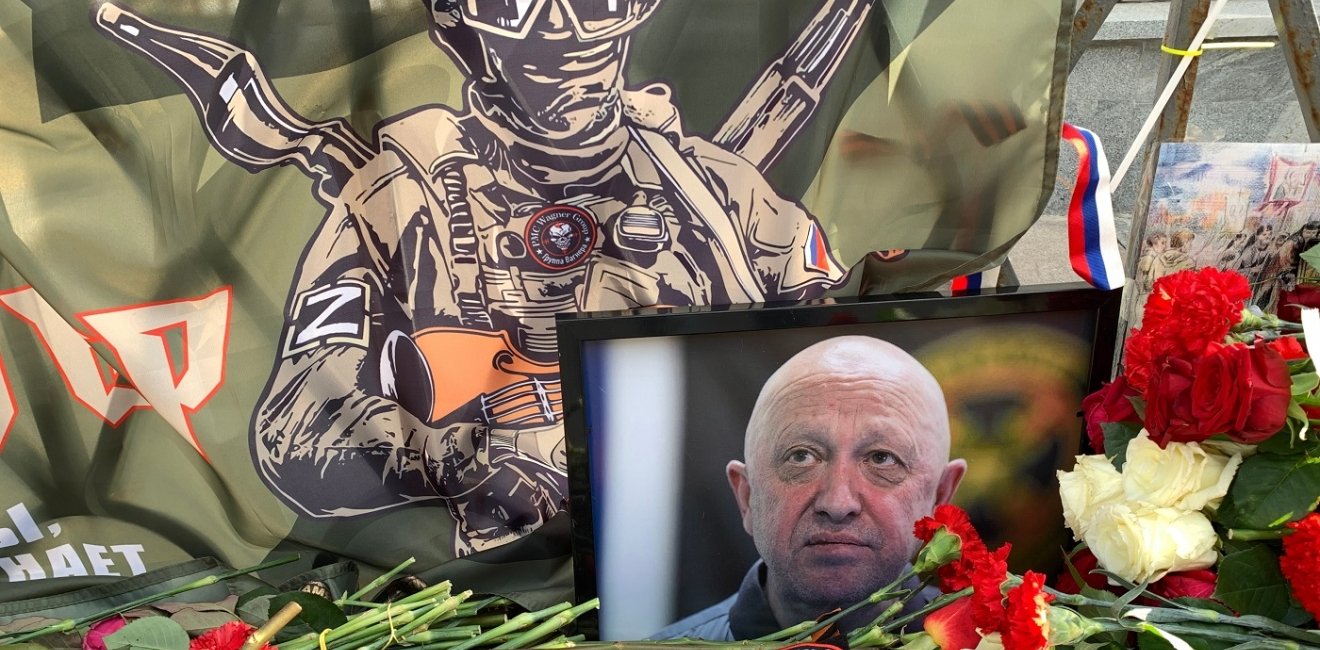
A blog of the Kennan Institute
Several Western commentators view the recent Wagner Group rebellion as proof of the weak and ineffectual condition of the Russian state. The rebellion, one writer suggested, has “raised serious doubts about the stability of [Vladimir Putin’s] regime.” If the Russian state were stronger, and its authority more established, the rebellion would not have been possible.
But perhaps it is not only the existence of a rebellion which determines how far a state is in control of its internal affairs. The effectiveness of the state’s response may instead prove a better indicator. Viewed this way, our perceptions of the Russian state’s domestic impotence may be exaggerated. Russia’s domestic policy has been immune to many of the internal political and military pressures it has faced in the past 30 years. It may be worth recalling an old saying, which has been attributed to various European statesmen throughout history: “Russia is not as strong as it says; nor is it as weak as it looks.”
The Failed Rebellion
In a way, Putin’s regime ended the Wagner rebellion remarkably successfully. In the first place, the rebellion was almost totally bloodless. There were skirmishes between Russian and Wagner units, but no significant battles. The rebellion never actually made it to Moscow, either. If the objective was to secure more ammunition and better support from the Russian military, the Wagner Group failed in achieving it. Now most Wagner units have been moved to Belarus and are in possession of far fewer weapons than they had while fighting in, for example, Bakhmut. In spite, moreover, of the suspicious circumstances surrounding the death of the Wagner Group’s leader, Yevgeny Prigozhin, there has been no major domestic agitation in Russia.
The independence of the Wagner Group has rapidly deteriorated since the rebellion. Preliminary efforts to integrate it into the broader structure of the Russian military may have failed, but edicts were issued which require all members of the Wagner Group swear an oath of loyalty to the Russian state. The oath was demanded only two days after Prigozhin’s death. It appears that it is the Wagner Group, and not the Russian government, which has been left weakened by the rebellion.
Throughout the rebellion, the loyalty of the army remained with the Russian state. To be sure, some Russian officers did refuse to follow orders to attack Wagner units on their “March for Justice.” But it should also be remembered that no Russian military elements mutinied or rebelled en masse, as has occurred many times before in Russia’s history. Russian military officials with links to Wagner—most notably Sergey Surovikin—have been removed from their positions without any serious resistance. Moreover, Putin personally praised National Guard Director Viktor Zolotov for his loyal assistance in securing the defense of Moscow during the rebellion. Zolotov informed journalists of a presidential decree which would strengthen the national guard, giving it “tanks and heavy weapons” with which it might crush any future rebellions. The Russian state appears to have used the rebellion as an opportunity to further strengthen its position.
Comparison with the Chechen Wars
The Russian Federation has not always, however, been so sovereign in its control. The most dangerous domestic problem it has faced since 1993 remains the Chechen crisis. Russia’s military and security services were still paralyzed by the collapse of the USSR when the army was sent into Grozny on New Year’s Eve 1994 to crush the semi-independent, breakaway Chechen Republic.
The Russian government and military struggled in Chechnya. More than 1,000 Russian soldiers were killed or wounded within the first 60 hours of the storming of Grozny alone, for example. Yet Russian policy in Chechnya at first appeared immune to the pressures of the crisis.
Senior Russian officials, like Defense Minister Pavel Grachev, appeared insistent on solving the problem on the battlefield rather than at the negotiating table.
Hostage-taking raids led by Chechen commanders—most notably Shamil Basayev—changed this. The Budyonnovsk hospital hostage crisis, in particular, helped to initiate a shift in Russian policy, which finally led to the 1996 Khasavyurt Accord, which ended the First Chechen War, and which became a formal treaty the following year.
The Wagner rebellion posed a far more serious threat to the Russian state than the Chechen insurgency did; in the former instance, Russia came close to a civil war. Yet despite this internal pressure, Russia did not enact any major changes to its policy, either towards Ukraine or Wagner. And while the conflict in Chechnya did constitute something of a civil war, the Chechen insurgency never posed as existential a threat to the Russian state as the Wagner rebellion did, and the Chechens still managed (initially) to force the hand of Russian policy.
Russian Authoritarianism Since 1994
What has increased Russia’s control of its internal affairs since 1994? One answer is the growth in the power of the security services during and after the Chechen wars. Vanora Bennett goes so far as to suggest that Russia’s security agencies were the only winners from the conflict. They went “from strength to strength,” ending up as powerful, if not more so, than they were in Soviet times.
Another factor is certainly the farcical nature of Russia’s democratic system. In Western countries, it is easy to separate the state from the ruling political party, but in Russia this is not so simple. The Russian state is in many ways synonymous with the term ״the Putin regime.” The lack of an effective political or popular opposition is consequently a significant contributing factor to the strength of the Russian security state.
Economically, the whole picture is less impressive, but even here, sanctions have not had the debilitating effect on Russia some may have expected. Diplomatically speaking, Russia’s relations with China, Iran, and North Korea have not been this intimate since at least Soviet times. Politically and militarily, Russia has been steadily securing and expanding its control of internal affairs ever since 1994. Thus, not even a heavily armed mercenary rebellion, which, after all, did enjoy some Russian military and popular support, could be considered even a minor success.
Russian Policy and Internal Pressure
Russian policy has, over the past 30 years, proven itself resistant to internal pressures, which has consequences for the war in Ukraine. The Russian security state’s control of the domestic situation has already demonstrated how energies for change that originate from within Russia often fail to force alterations in Russian policy.
But while the Russian state may indeed be strong, it is not necessarily flexible. Perhaps it is more brittle than we realize, firm but prone to shattering quickly and chaotically. So far, it appears that any changes to Russian policy must be affected from pressures applied externally. NATO and Ukrainian officials should bear this in mind when discussing plans to end the current war.
The opinions expressed in this article are those solely of the author and do not reflect the views of the Kennan Institute.
Author


Kennan Institute
After more than 50 years as a vital part of the Wilson Center legacy, the Kennan Institute has become an independent think tank. You can find the current website for the Kennan Institute at kennaninstitute.org. Please look for future announcements about partnership activities between the Wilson Center and the Kennan Institute at Wilson Center Press Room. The Wilson Center is proud of its historic connection to the Kennan Institute and looks forward to supporting its activities as an independent center of knowledge. The Kennan Institute is committed to improving American understanding of Russia, Ukraine, Central Asia, the South Caucasus, and the surrounding region through research and exchange. Read more

Explore More in The Russia File
Browse The Russia File
Chechnya as a Model of Modern Russia

Russia’s Indigenous Communities and the War in Ukraine

Gas and Power in a Changing US–Russia Relationship

